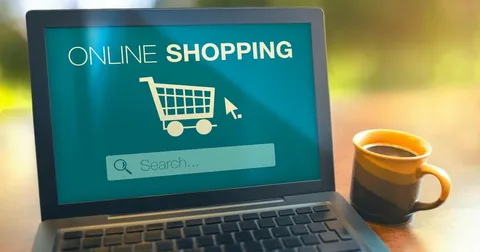Payment Gateways in Egypt: Unlocking Online Commerce for Local Businesses
varsha October 24, 2025 0 COMMENTS
Egypt’s e-commerce market is gaining momentum, and these aren’t just empty words. Over 90 million consumers create a real foundation for online trade. Most of them are younger than 30, which means digital technologies come naturally to them like breathing.
Table of Contents
Overview of the Payment Landscape in Egypt
Internet penetration stands at 35.6% of the population. Doesn’t sound too impressive? Actually, we’re talking about one of the largest online audiences among Arabic-speaking countries. Payment gateway in Egypt has transformed from an exotic novelty into a necessity for any business that wants to operate normally with this audience. Young people hang out on social networks, constantly use apps — the perfect environment for implementing modern payment solutions.
Investments in national platforms in Arabic pay off. Companies gain access to millions of shoppers who previously simply couldn’t pay conveniently online. The market value of online stores is $5.4 billion, with annual growth of 12%. The numbers speak for themselves.
The Role of Financial Institutions and Banks
Banks keep the entire payment system afloat. National Bank of Egypt, Banque Misr, Crédit Agricole, HSBC Egypt — these form the backbone of the infrastructure. They connect sellers and buyers through an extensive network of branches and ATMs.
International players like QNB and Arab Banking Corporation bring along global security standards. Local banks — Alex institution, Banque du Caire, Commercial International institution — adapt all this to Egyptian realities. The result is a hybrid that works for both local payments and international transfers.
Banks try to implement services, but there’s a problem here. Egyptians love cash. Yes, the country leads the region in the number of credit cardholders, but many simply don’t want to use them for online purchases. Debit cards are spreading faster, though even here we’re far from mass usage in online stores.
Digital Transformation and Financial Inclusion
Digitalization changes the rules of the game. The government has created a decent regulatory framework for electronic payments. Regulators monitor security to protect all market participants.
The difficulty is that rural areas live in a different reality. There are a few institution branches there. People aren’t familiar with electronic services and often can’t even pass basic identity verification to open an account. Fintech companies try to solve this through alternative channels, but it’s a long road ahead.
Egyptians spend an average of $479.42 online per year. Not much, but the indicator is growing. More and more people are gaining access to digital payment instruments. Mobile operators — Orange, Vodafone, Etisalat, WE — also contribute through their own payment solutions.
How Online Payment Systems Work in Egypt
Payment systems operate through a chain of interactions. A customer places an order, and data flies from the seller to the payment gateway. The gateway checks the information, connects with the financial institution that issued the card, and gets approval. All this happens in a couple of seconds.
Data is protected by multi-level encryption. Tokenization substitutes real card numbers with unique codes. This seriously complicates life for fraudsters. Three-dimensional authentication adds another barrier — confirmation via SMS or app.
But here’s the paradox: over 90% of purchases in online stores are still paid for with cash on delivery. People simply don’t trust online payments. For merchants, this is a headache — they have to organize logistics for handling cash, and that means additional expenses.
Key Payment Systems and Their Infrastructure
The Egyptian market offers tons of payment options:
- Visa and Mastercard — classics that work everywhere, most major stores accept them for international customers, reliable and familiar.
- Meeza — a national system that unites local banks, commissions lower than international networks, but only works within the country.
- OneCard — prepaid cards for those without bank accounts, convenient for youth and people without a credit history.
- Fawry Pay — people’s favorite, thousands of points across the country, you can pay bills and make purchases.
Mobile wallets are gaining popularity among young people. They’re fast, convenient, and financial institution cards don’t come close in terms of operational speed. Integration with social networks makes them even more attractive.
The Importance of Safety Standards
Without security, there’s nowhere to go. People won’t pay online if they’re not confident in the protection of their data. Egyptian regulators force everyone to comply with the PCI DSS standard. Sounds boring, but these are specific rules for handling card information.
Providers purchase a fraud protection agency. Machine learning algorithms look at transactions and calculate strange patterns. Fingerprints, facial scanning — all this complicates life for those who want to steal other people’s money. Yes, some users find all these checks to be an unnecessary hassle. But the alternative is worse — lost money and stolen data.
Choosing the Right Payment Solution for Your Company
Every business needs its own solution. A small online store looks for something simple to install with adequate tariffs. A large retail chain wants advanced functionality: automatic subscription charges, working with multiple currencies, and detailed analytics.
Key Goals When Selecting a Payment System
Before choosing a payment management service in Egypt, prioritize your objectives:
- Commission fees can eat up profits if you sell goods with small markups.
- How quickly money hits your account is a question of working capital and the ability to reinvest revenue.
- What payment methods your clients prefer — support them, otherwise they’ll go to competitors.
Technical support matters a lot. Imagine: the system goes down and money isn’t going through. Every minute of downtime is a lost sale. Clear documentation for programmers speeds up launch and saves development budget.
Payment Solutions That Keep Companies Moving
Payment solution today offer much more than just accepting money. https://paykassma.com/ and similar payment services provide tools for sales analysis. You see which products fly off the shelves, which ones gather dust, and when purchase peaks occur. This information helps plan procurement and marketing.
By integrating with accounting software, you can eliminate a lot of routine work. Transaction data automatically goes into reports, so there’s no need to manually enter numbers or check for mistakes. Plus, our API offers the flexibility to customize the system to your specific business needs – add what you need, remove what you don’t.
The Financial Infrastructure Underpinning Payment Systems
In Egypt, financial institutions use networks to handle payments. The country’s payment system links banks and settles transactions right away. Processing centres deal with millions of transactions each day.
Cooperation Between Banks and Fintech Players
Banks and fintech companies form partnerships. Traditional institutions provide licences and capital, and startups offer technology and development speed. Joint projects create products unattainable for each side separately. The Central Financial Institution regulatory sandbox allows testing of blockchain transfers, biometrics, and AI fraud detection systems.
The Future of Egypt’s Payment System
The payment sector transforms. Money yields to digital methods. The government stimulates transition through tax incentives. Financial literacy enters school curricula.
Key technologies:
- Blockchain reduces cross-border transfer time to minutes, eliminating intermediaries.
- Cryptocurrencies develop within the niche of freelancers and IT specialists.
- Biometrics replaces passwords with fingerprints and facial recognition.
Central Bank Digital Currency could radically change the system. A programmable digital pound would automate government payments and provide financial access to the unbanked population.
Problems remain: infrastructure gaps, cyber threats, and low user awareness. Global players like PayPal and Stripe attack the market, and local companies compete through knowledge of local specifics and their ability to reach underserved areas.
The ease of use, real-time availability, and efficiency of these systems streamline operations for any organization. They deliver better collection processes, help track transactions, and allow businesses to switch between companies as needed.
Conclusion: Building a Stronger Payment Ecosystem in Egypt
To keep things going well, everyone needs to work together. Stores require affordable payment options, people want to feel secure when they pay, and regulators need to maintain control without holding back new ideas. It’s also key to continue investing in phone services to keep pace with this fast growth.
Money is still common, and people won’t ditch it right away. But phone and card payments are becoming more popular, which means more transactions, with more places to use them, and more people jumping on board. Even in rural areas, people will soon be able to pay with their phones due to improving networks. As digital payments become safer, people will trust them more.
Businesses that invest in payment systems early will have a significant advantage. Egypt has a lot going for it, including a young population, increasing spending power, and better access. The first companies that create comprehensive and functional systems, with expertise in data-driven CRM solutions for medium-sized industry players, will likely achieve success. The potential is clear, and the tech choices we make and who we partner with now will shape the future of payments in Egypt.
RELATED ARTICLES
Latest Articles
 How to overcome “Imposter Syndrome…In Technology
How to overcome “Imposter Syndrome…In Technology How to Pick the Right Payment Service Pr…In Technology
How to Pick the Right Payment Service Pr…In Technology When Is Cyber Monday? Save on Electronic…In General
When Is Cyber Monday? Save on Electronic…In General The Psychology Behind Intent Data: Why B…In Technology
The Psychology Behind Intent Data: Why B…In Technology Cabo Luxury Villas: Where Paradise Meets…In App
Cabo Luxury Villas: Where Paradise Meets…In App Best Data Analysis Tools for Businesses …In Technology
Best Data Analysis Tools for Businesses …In Technology How Takipcimx 1000 Can Grow Your Instagr…In General, Technology
How Takipcimx 1000 Can Grow Your Instagr…In General, Technology Fappelo Features Every Digital Creator S…In General
Fappelo Features Every Digital Creator S…In General
stopie.com is a participant in the Amazon Services LLC Associates Program, an affiliate advertising program designed to provide a means for sites to earn advertising fees by advertising and linking to Amazon.com.
Clicking on an Amazon link from stopie.com does not increase the cost of any item you purchase.
We will only ever link to Amazon products that we think our visitors may be interested in and appreciate learning more about.



